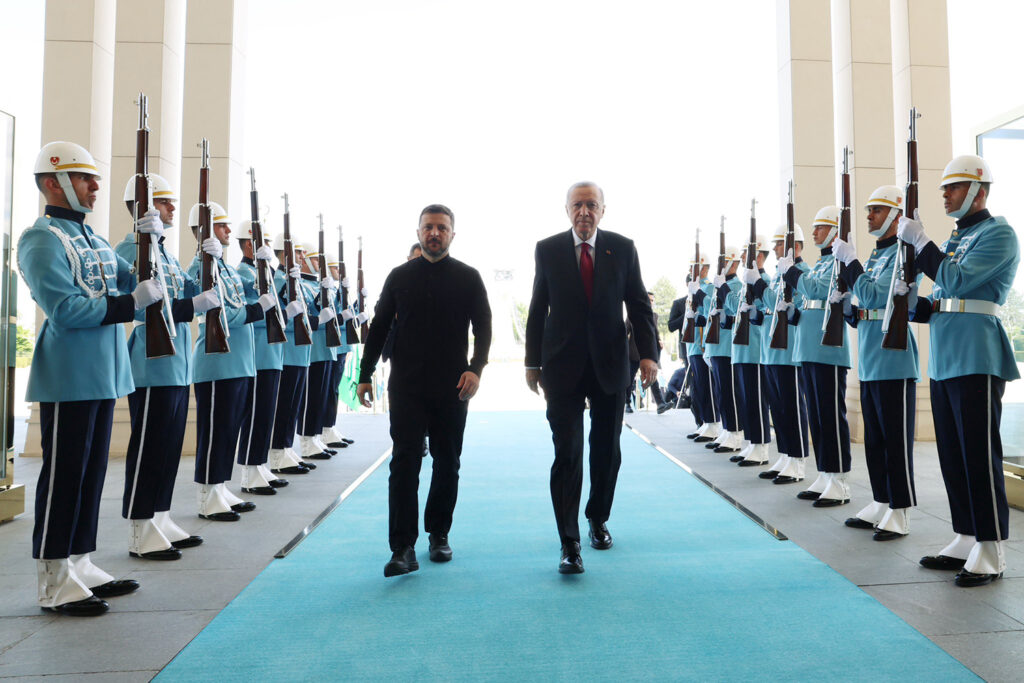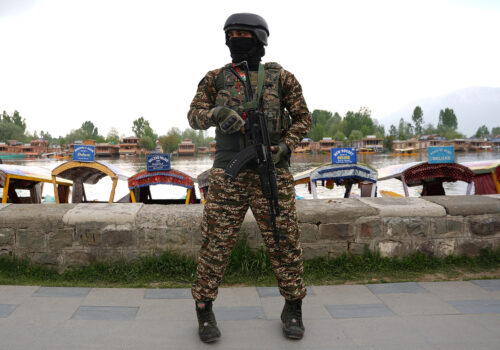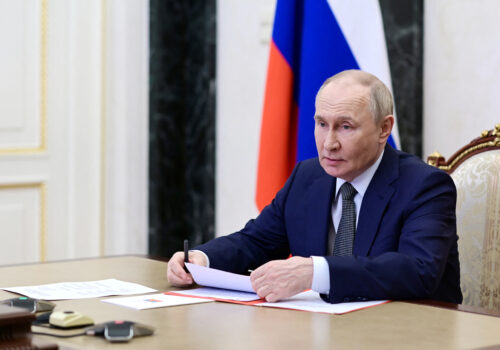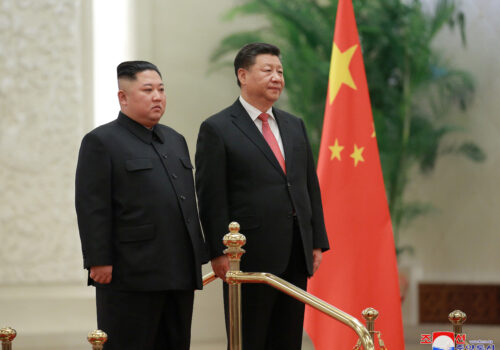Geography is destiny.
The quote is sometimes attributed to Napoleon Bonaparte, but it might as well also be the working motto of Turkish President Recep Tayyip Erdoğan.
This past week, Erdoğan strung together a trio of geopolitical wins that underscored his success in leveraging his country’s size, military capability, and—perhaps most of all—geographic position to achieve outsize influence.
Erdoğan did this despite facing some of the biggest political protests he has weathered in years following the imprisonment of his political rival, Istanbul Mayor Ekrem İmamoğlu. It’s no wonder Erdoğan is harnessing international gains to shore up his domestic position.
The first victory was US President Donald Trump’s decision to lift sanctions on Syria’s new government. Turkey played a catalytic role in the December ouster of Bashar al-Assad, Erdoğan’s nemesis who had ruled Syria since 2000, when he succeeded his father. It was fitting that Trump included Erdoğan by phone in his meeting this week in Riyadh with Saudi Crown Prince Mohammed bin Salman and Syrian President Ahmed al-Sharaa.
Second, the Kurdish militant group known as the PKK announced this week that it will disband and end its armed struggle after months of Turkish backchannel diplomacy. There’s still a risk that the PKK could fragment into smaller groups that attack Turkey, but for now, the development is a win for the country’s security.
Third, Istanbul played host to the first direct peace talks between Ukrainian and Russian officials since March 2022, with US Secretary of State Marco Rubio also flying in from a meeting of NATO foreign ministers in the Turkish town of Antalya. Russian President Vladimir Putin was a no-show, which kept Trump from traveling to Turkey as well, and the two-hour meeting appears to have been fruitless. Yet it underscored Erdoğan’s ability to navigate both Moscow and Kyiv even while providing Ukraine with armed drones.
For years, some Western officials and analysts have dismissed Erdoğan as a populist authoritarian whose inflation-ridden economy was troubled and whose geopolitical ambitions were fantasy. But it now rings truer when Erdoğan says, as he did in December, “Turkey is bigger than Turkey. As a nation, we cannot limit our horizon to 782,000 square kilometers.”
None of this week’s wins are permanent. The jury is out on whether Syria’s new leadership can hold the country together. The PKK peace is fragile. Ukraine-Russia talks still don’t seem to be going anywhere. And other pressing questions remain unresolved, such as whether Erdoğan will be able to successfully manage relations with Israel given Israeli security concerns about the expanded Turkish military presence in Syria. However all that turns out, Erdoğan’s focus remains on protecting both his legacy and longevity after more than twenty years as prime minister and then president.
We might be a long way from a Pax Turcica. For now, however, Erdoğan and Turkey have gained relevance as an indispensable player from the Black Sea to the Levant, and from Central Asia to Europe, where the Turkish military will play a crucial role if Europe is to have the wherewithal to provide for Ukraine’s security—and its own.
What I’m reading
- With doubts growing within NATO about the US nuclear umbrella, French President Emmanuel Macron specified three conditions for extending the protection of France’s nuclear weapons to European allies. We’ll keep monitoring the Trump transatlantic fallout.
- “How do you know the day that you become old?” legendary investor Warren Buffett this week asked the Wall Street Journal as he announced he was stepping back at age ninety-four (for him, it was at age ninety).
- We interrupt this report for an inflection point in US baseball, my non-geopolitical passion. Call me old-fashioned, but I hope the Hall of Fame won’t ever induct baseball’s all-time hits leader Pete Rose, who passed away last September, given his gambling on baseball. That said, I wish he’d lived to see Major League Baseball lift its banishment of “Charlie Hustle” from the game.
Frederick Kempe is president and chief executive officer of the Atlantic Council. You can follow him on X: @FredKempe.
This edition is part of Frederick Kempe’s Inflection Points newsletter, a column of dispatches from a world in transition. To receive this newsletter throughout the week, sign up here.
Further reading
Thu, May 15, 2025
How South Asia’s ‘swing states’ navigate India-Pakistan tensions
New Atlanticist By
Bangladesh, Sri Lanka, Nepal, Bhutan, and the Maldives are quiet strategists in South Asia—but ignoring their roles risks destabilizing the region's fragile geopolitical balance.
Fri, May 16, 2025
To achieve his goal of a durable peace, Trump must turn up the pressure on Putin
New Atlanticist By John E. Herbst
The Trump administration can only achieve a lasting peace in Ukraine if it makes clear that there will be consequences for Russia’s unwillingness to compromise.
Mon, May 12, 2025
A rising nuclear double-threat in East Asia: Insights from our Guardian Tiger I and II tabletop exercises
Report By Markus Garlauskas, Lauren D. Gilbert, Kyoko Imai
A decade from now, the United States will face even tougher challenges in the Indo-Pacific than it does today. With this in mind, the Atlantic Council's Guardian Tiger tabletop exercise series is preparing mid-level government and military leaders to address such threats.
Image: Turkish President Recep Tayyip Erdogan shakes hands with Ukrainian President Volodymyr Zelenskyy during their meeting at Turkey's presidential palace in Ankara, Thursday May 15, 2025. Photo via Turkish Presidency handout/EYEPRESS/Reuters.



